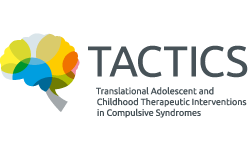 | The Stanley Medical Research Institute (SMRI) is a nonprofit organization supporting research into schizophrenia and bipolar disorder. Since it began in 1989, SMRI has supported more than $600 million in research in over 30 countries around the world. It is the largest nongovernmental source of funds for research on these diseases in the United States. |

| Psynova Neurotech is focused on the identification of novel biomarkers and drug targets for neuropsychiatric disorders. |
 | The BBSRC has a unique and central place in supporting the UK’s world-leading position in bioscience. They are an investor in research and training, with the aim of furthering scientific knowledge, to promote economic growth, wealth and job creation and to improve quality of life in the UK and beyond. |
 | The Engineering and Physical Sciences Research Council (EPSRC) is the UK’s main agency for funding research in engineering and the physical sciences. EPSRC invests around £800 million a year in research and postgraduate training, to help the UK to handle the next generation of technological change. |
 | The Netherlands Study of Depression and Anxiety (NESDA) was designed to investigate the course of depression and anxiety disorders over a period of several years. It includes 2981 participants with and without symptoms from primary care practices and specialised mental health institutions. |
 | The aim of TACTICS is to identify the neural, genetic and molecular factors involved in the pathogenesis of compulsivity. A strong multidisciplinary team of preclinical and clinical top researchers all work together to a better understanding and treatment of the syndromes. TACTICS is a project funded by the EU programme FP7 and combines 11 partners from 7 different countries. |
 | Autism Speaks supports global biomedical research into the diagnosis, causes, prevention, and treatment of autism or its disabling symptoms. Their mission is to improve the future for all who struggle with autism spectrum disorders. In support of that mission they provide funding along the entire research continuum - from discovery to development to dissemination - for innovative projects that hold considerable promise for significantly improving the lives of those affected by autism. |
 | The Medical Research Council (MRC) is a leading UK public funder of biomedical research, dedicated to improving human health through world-class science. It supports research across the full spectrum—from basic science to clinical trials—with a strong focus on impact and translation. MRC funding enables researchers to tackle complex health challenges and advance innovative approaches to diagnosis, prevention, and treatment. |
| | |